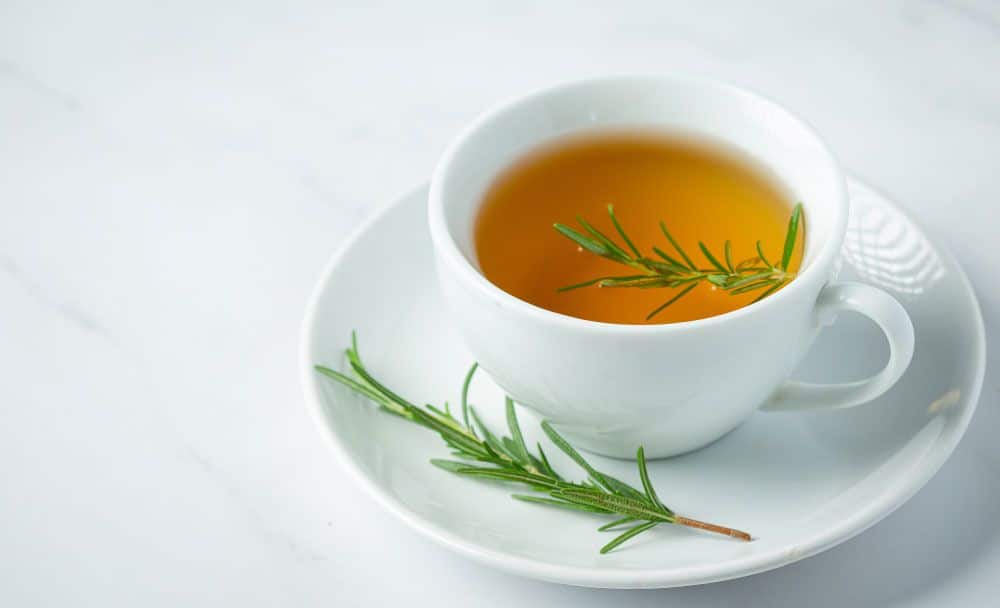
Dealing with a fever can be an uncomfortable and worrisome experience. So whether it’s due to a common cold, flu, or other viral infections, finding relief from fever symptoms becomes a top priority. While medical intervention is necessary for severe cases, you can try several simple remedies at home to manage your fever and promote a speedy recovery.
This article looks at 15 effective home remedies that have stood the test of time. These remedies are easily accessible, affordable, and can relieve fever-related discomfort. So, let’s dive in and discover these simple yet effective solutions that can bring comfort and relief when a fever strikes.
What is fever?
Fever is a natural response of the body’s immune system to fight off infections, viruses, or other underlying medical conditions. It is characterized by an elevated body temperature above the normal range of 98.6°F (37°C). [1]
Fever is more of a symptom than illness, indicating the body’s defense mechanism is at work. Fever often gets accompanied by other symptoms such as chills, sweating, headache, muscle aches, and fatigue. It can occur in everyone from infants to adults.
15 home remedies for fever
Finding effective home remedies becomes crucial when a fever strikes. So, let’s explore 15 home remedies for high fever that are safe and effective.
- Stay hydrated
Drinking plenty of water, herbal teas, or clear broths helps prevent dehydration and supports the body in fighting off infections.

2. Rest
Allow the body to recover by getting ample sleep. It helps conserve energy and enables the immune system to combat the underlying cause of the fever.
3. Lukewarm sponge bath
One of the best home remedies for fever in children and babies is a sponge bath. Gently sponge their bodies with lukewarm water to help reduce body temperature. Avoid using cold water as it may cause shivering.
4. Dress in lightweight clothing
Opt for lightweight, breathable clothing to regulate temperature and prevent overheating.
5. Cool compresses
Apply cool compresses to the forehead, wrists, and back of the neck to provide soothing relief and reduce body temperature.
6. Ginger tea
Prepare a warm ginger tea by steeping fresh ginger slices in hot water. It is one of the best home remedies for viral fever that can promote sweating and reduce fever symptoms.
7. Honey and lemon
Mix a teaspoon of honey and a few drops of lemon juice in warm water. The combination can help soothe a sore throat and relieve fever discomfort.
8. Herbal remedies
Herbal teas made from chamomile or peppermint can alleviate congestion and promote relaxation.
9.Essential oils
Use essential oils in a warm bath or a diffuser to create a comforting environment.
10. Turmeric milk
Blend a teaspoon of turmeric powder in warm milk. Turmeric’s anti-inflammatory properties may help alleviate fever symptoms.

11. Fenugreek seeds
Soak fenugreek seeds in water overnight. Then, consume the water in the morning. It has a cooling effect.
12. Cold foot soak
For individuals not sensitive to cold, a brief soak of feet in cold water can help draw heat away from the head and lower body temperature.
13. Basil leaves
Boil a handful of basil leaves in water, strain the mixture, and drink it after it cools down slightly. Basil is known for its antimicrobial properties.
14. Fluid-rich foods for kids
Offer fluids like popsicles, fruit juices, or homemade soups to keep children hydrated and nourished. These are one of the best home remedies for fever in kids.
15. Consult a healthcare professional
While you may seek home remedies for fever during pregnancy, it’s essential to avoid that. Instead, consult a healthcare professional who can guide and recommend safe treatments for your condition.
Home remedies for fever and Ayurveda
Ayurvedic remedies for managing fever include the use of herbs like tulsi (holy basil) and spices such as ginger and turmeric, known for their anti-inflammatory and immune-boosting properties. Sandalwood paste applied to the forehead and coriander water consumption are also suggested to help reduce fever discomfort.
Additionally, Ayurvedic dietary recommendations focus on consuming easily digestible foods and herbal teas that support the immune system. These Ayurvedic home remedies provide a gentle and natural approach to managing fever symptoms.
When to see a doctor
While most fevers are harmless and subside on their own, there are certain circumstances when it is essential to seek medical attention. Here are some signs when you should see a doctor:
- High or prolonged fever
Suppose the fever persists for more than a few days or reaches a temperature of 103°F (39.4°C) or higher in adults or 100.4°F (38°C) or higher in infants under three months. In that case, it’s better to consult a healthcare professional.
- Severe symptoms
If the fever accompanies symptoms like difficulty breathing, persistent vomiting, severe headache, neck stiffness, confusion, or seizures, immediate medical attention is necessary.
- Infants and young children
A doctor should evaluate any fever in infants under three months. For older children, it’s advisable to seek medical advice if the fever persists for more than 24 hours or if the child appears lethargic or is not eating or drinking adequately.
- Underlying health conditions
Suppose the person with the fever has a weakened immune system, chronic medical conditions, or is undergoing treatment that suppresses the immune system. In that case, it’s essential to consult a doctor for guidance.
- Pregnancy
Pregnant women experiencing a fever should seek medical attention, as it may pose risks to both the mother and the baby. A healthcare professional can provide appropriate advice and treatment options.
- Worsening symptoms
If the fever is initially mild but worsens over time or if new symptoms emerge, it’s advisable to see a doctor.
- Travel history
Suppose you have recently traveled to an area with a high incidence of infectious diseases or came in contact with someone with a contagious illness. In that case, it’s essential to inform your healthcare provider.
FAQs
1. What is the fastest remedy for fever?
The fastest remedy for fever is typically over-the-counter fever-reducing medications. However, it’s essential to follow the recommended dosage and consult a healthcare professional, especially for children or individuals with underlying health conditions.
2. How to reduce fever naturally?
There are several natural ways to reduce fever. Stay hydrated, get adequate rest, apply cool compresses to the forehead. Additionally, herbal remedies like ginger, honey, lemon, and turmeric milk may help naturally alleviate fever symptoms.
3.Is coconut water good for fever?
Yes, coconut water can be beneficial during a fever. It is a natural electrolyte source that helps keep the body hydrated. Coconut water also contains vitamins, minerals, and antioxidants that can support the immune system. However, coconut water should not be relied upon as the sole treatment for fever. Seek medical advice if the fever worsens.
4. What not to eat during fever?
During a fever, avoiding heavy, greasy, and spicy foods that can be difficult to digest is generally advisable. These foods may put additional stress on the body and hinder healing. Instead, opting for light, easily digestible foods such as soups, broths, fruits, vegetables, and whole grains is best.
5. What foods reduce a fever?
While specific foods do not directly reduce fever, certain foods can help support the body’s immune system and provide comfort during a fever. For example, vitamin C-rich foods such as citrus fruits, strawberries, and bell peppers can boost immune function. In addition, warm liquids like herbal teas, clear broths, and warm water with lemon and honey can help soothe a sore throat.
Conclusion
The 15 remedies discussed in this article offer accessible solutions to help manage fever symptoms and promote recovery. However, these remedies should not replace professional medical advice. It’s crucial to monitor fever symptoms closely and seek medical attention.
Stay informed, take care of your body, and implement these home remedies responsibly in your recovery journey. Consult healthcare professionals for proper diagnosis, guidance, and necessary medical interventions.
Disclaimer:
The information provided here is not intended to replace professional advice or treatment.



















